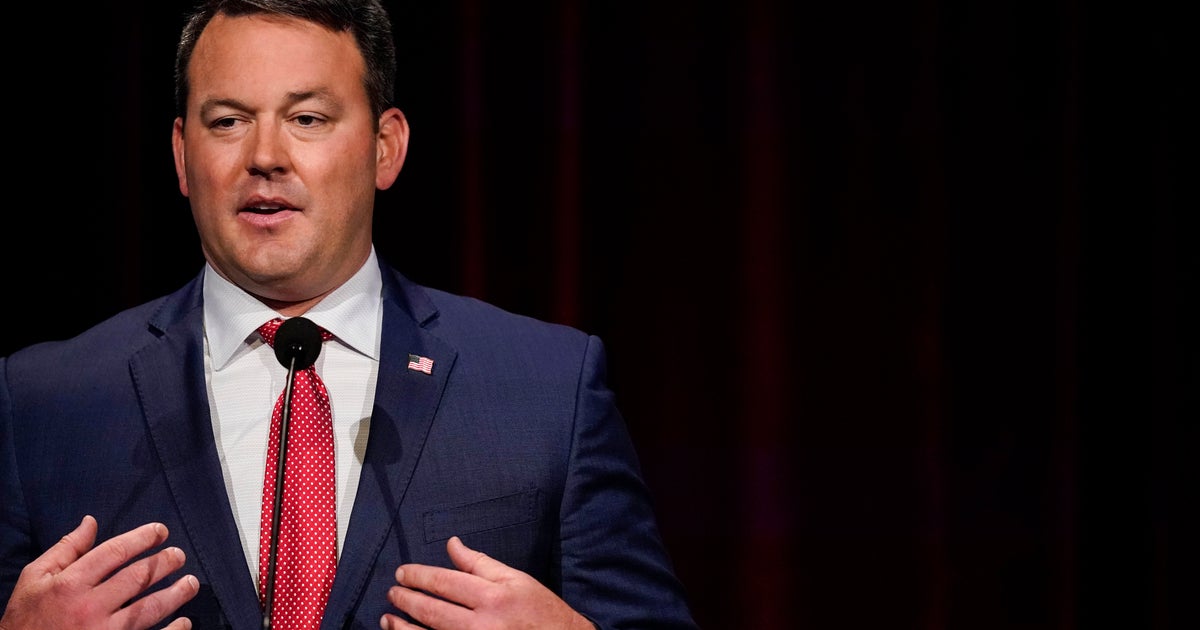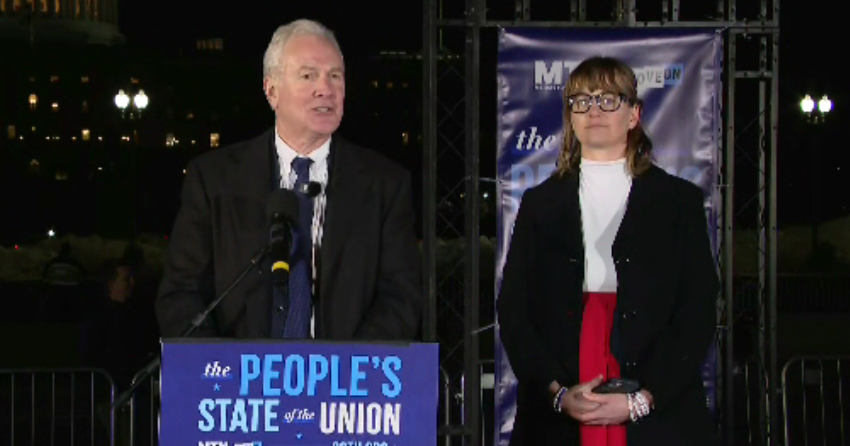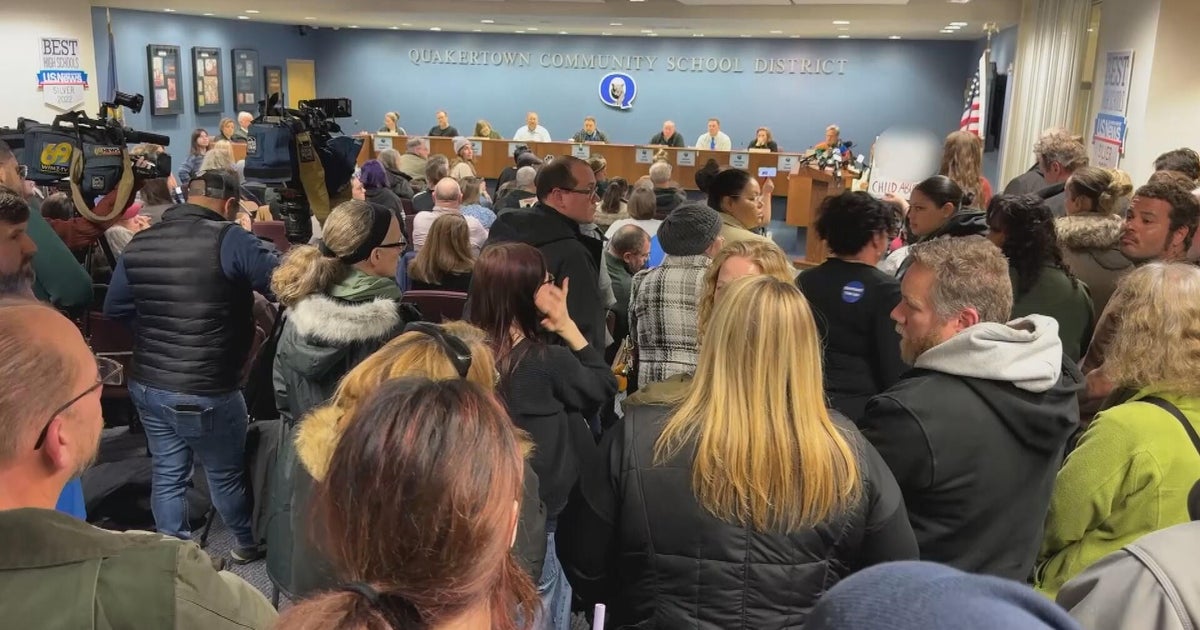Senators Seek More Transparency In Online Political Ads
WASHINGTON (AP) — Senators are moving to boost transparency for online political ads, unveiling on Thursday what could be the first of several pieces of legislation to try to lessen influence from Russia or other foreign actors on U.S. elections.
The bill by Democratic Sens. Mark Warner of Virginia and Amy Klobuchar of Minnesota would require social media companies like Facebook and Twitter to keep public files of election ads and meet the same disclaimer requirements as political broadcast and print advertising. Federal regulations now require television and radio stations to make publicly available the details of political ads they air. That includes who runs the ad, when it runs and how much it costs.
The bill also would require companies to "make reasonable efforts" to ensure that election ads are not purchased directly or indirectly by a foreign national. The move comes after Facebook revealed that ads that ran on the company's social media platform and have been linked to a Russian internet agency were seen by an estimated 10 million people before and after the 2016 election.
Warner is the top Democrat on the Senate intelligence committee, which is investigating Russian meddling in the 2016 race, and Klobuchar is the top Democrat on the Senate Rules Committee, which oversees elections. The legislation also has support from Republican Sen. John McCain of Arizona, who is the chairman of the Senate Armed Services Committee.
Lawmakers on the Senate intelligence panel and other committees investigating Russian influence have said one of the main roles of Congress will be to pass legislation to try to stop the foreign meddling. That's in contrast to special counsel Robert Mueller, who is also investigating and has the ability to prosecute if he finds any criminal wrongdoing.
Other lawmakers are working on legislation to help states detect if foreign actors are trying to hack into their systems. That's after the Department of Homeland Security said that 21 states had their election systems targeted by Russian government hackers.
But it's unclear if Congress will be able to agree on any such legislation amid heightened partisan tensions. Warner and Klobuchar are still trying to woo additional Senate and House Republicans, who have spent much of the year rolling back federal regulations they see as burdensome.
McCain, who has for years broken with many of his GOP colleagues on campaign finance laws, said in a statement that he has "long fought to increase transparency and end the corrupting influence of special interests in political campaigns, and I am confident this legislation will modernize existing law to safeguard the integrity of our election system."
Senate Intelligence Committee Chairman Richard Burr, R-N.C., has said he wants to wait until after an upcoming hearing with social media executives from Facebook, Twitter and Google before weighing in on the legislation. Late last month, after Warner first floated the bill, Burr said it was too soon to discuss legislation and that the hearing will "explore for the first time any holes that might exist in social media platform regulation or campaign law."
Another Republican member of the intelligence panel, Oklahoma Sen. James Lankford, said he has concerns about the bill, including that "there is a difference between the public airwaves and privately held fiber, basically, and how it's managed."
He said the "idea isn't bad," but he wants to look at the technical issues.
Lankford said he believes there will be several pieces of legislation coming out of the Russia probe, but "whether that's the first or not, I don't know."
Announcing the legislation at a news conference, the two Democrats framed the issue as a matter of national security.
"Russia attacked us and will continue to use different tactics to undermine our democracy and divide our country, including by purchasing disruptive online political ads," Klobuchar said. "We have to secure our election systems and we have to do it now."
Warner, who has worked closely with Burr on the intelligence panel, has said repeatedly that he hopes the social media companies will work with them on the legislation, which he calls "the lightest touch possible."
The companies have said very little publicly about the bill or the prospect of regulation. Facebook CEO Mark Zuckerberg has said his company will now require political ads to disclose who is paying for them, a move that Warner and Klobuchar said their bill would "formalize and expand."
"We stand with lawmakers in their effort to achieve transparency in political advertising," Erin Egan, Facebook vice president for United States public policy, said in a statement after Warner and Klobuchar introduced their bill. "We have already announced the steps Facebook will take on our own and we look forward to continuing the conversation with lawmakers as we work toward a legislative solution."
Google also said it supports efforts to "improve transparency, enhance disclosures, and reduce foreign abuse." The company said it is evaluating steps it can take.
Twitter would only stay in a statement that "we look forward to engaging with Congress and the FEC on these issues." The Federal Election Commission regulates campaign finance laws.
Lawrence Noble, general counsel for the Campaign Legal Center, a nonpartisan election advocacy group, said that some foreign entities could potentially get around the legislation if it were passed, but it would make it harder for them and put more responsibility on the companies.
"There is a difference between them saying they will do something and the law saying they have to do something," Noble said.
© Copyright 2017 The Associated Press. All Rights Reserved. This material may not be published, broadcast, rewritten or redistributed.







